How BCG Works with Clients on Food Systems
Large food systems companies manage expansive supply chains that crisscross the globe. And yet many of their challenges are local. Our holistic approach to food systems consulting helps keep these dynamics in balance and includes support in the following areas:
- Sustainable Agriculture. We help build the coalitions that can make sustainable agriculture a reality. We work across the entire agriculture value chain, from equipment and seed to trade and retail, to serve leading food and agriculture companies well as governments, foundations, NGOs, and coalitions. BCG has also worked with companies and foundations on regenerative agriculture and soil carbon sequestration; sustainable fisheries and aquaculture; and the role of R&D, innovation, and digital in advancing sustainable agriculture.
- Food Loss and Waste. Every year, 1.6 billion tons of food—worth about $1.2 trillion—are lost or go to waste. That’s one-third of the total amount of food produced globally. The problem is enormous, but there is a clear way forward. BCG has identified five drivers of the problem that, if addressed, could reduce the dollar value of annual food loss and waste by nearly $700 billion. Real headway will require commitment and coordinated action from consumers, governments, NGOs, farmers, and companies.
- Food Supply Chains. We help agribusiness and food industries improve efficiencies along their supply chains in ways that are environmentally sustainable and that improve food security. We also help them find ways to optimize the import and export of food products.
- Food Packaging. Food packaging can do more than just attract and inform buyers. Companies can revise packaging to reduce their global carbon footprint or to incorporate technologies that increase product longevity.
Our Client Work in Food Systems and Security
Digital Agriculture
Digital has the potential to transform agriculture in ways that can improve food security as well as the livelihoods and resiliency of farmers who are feeling the effects of climate change. But digital transformation doesn’t come easily, especially in a such a complex, fragmented space. We worked with the Gates Foundation to take a systems approach to understand what a strong digital agriculture ecosystem looks like, and how best to facilitate the development of both public and private sector digital solutions.
Digital has the potential to transform agriculture in ways that can improve food security as well as the livelihoods and resiliency of farmers who are feeling the effects of climate change. But digital transformation doesn’t come easily, especially in a such a complex, fragmented space. We worked with the Gates Foundation to take a systems approach to understand what a strong digital agriculture ecosystem looks like, and how best to facilitate the development of both public and private sector digital solutions.
Smallholder Farmers
These small, often single-family-owned farms face particular challenges to thrive or even to subsist. We create custom solutions based on our careful study of each situation. For instance, a thorough review of successful smallholder support systems in China yielded a plan for applying best practices to parts of Africa. We also worked closely with a major foundation to take a systems-change approach to supporting smallholder livestock development and digital farmer services.
These small, often single-family-owned farms face particular challenges to thrive or even to subsist. We create custom solutions based on our careful study of each situation. For instance, a thorough review of successful smallholder support systems in China yielded a plan for applying best practices to parts of Africa. We also worked closely with a major foundation to take a systems-change approach to supporting smallholder livestock development and digital farmer services.
Agricultural Trade Policies
Trade policies are key to unlocking food self-sufficiency possibilities, building an agricultural sector, meeting worldwide food demand, and more. In one engagement, we helped an African country and a regional free trade union understand the mutual benefits, negotiation strategies, and legal risks involved in entering a free trade agreement.
Trade policies are key to unlocking food self-sufficiency possibilities, building an agricultural sector, meeting worldwide food demand, and more. In one engagement, we helped an African country and a regional free trade union understand the mutual benefits, negotiation strategies, and legal risks involved in entering a free trade agreement.
Agricultural Markets and Development
The agricultural value chain is subject to many new trends and disruptions. We help clients understand emerging trends and incorporate them into long-term plans. For instance, we helped a ministry of agriculture in Latin America create a development plan for the country’s agriculture frontier region.
The agricultural value chain is subject to many new trends and disruptions. We help clients understand emerging trends and incorporate them into long-term plans. For instance, we helped a ministry of agriculture in Latin America create a development plan for the country’s agriculture frontier region.
Food Systems Transformation Journey
Transforming a country’s food system begins with a thorough analysis of that system. BCG, in collaboration with the Food System Transformative Integrated Policy Initiative, developed a toolkit that offers a step-by-step process guide as well as practical tools that, using a collaborative design approach, help to identify the key challenges and opportunities in a country’s food system.
Transforming a country’s food system begins with a thorough analysis of that system. BCG, in collaboration with the Food System Transformative Integrated Policy Initiative, developed a toolkit that offers a step-by-step process guide as well as practical tools that, using a collaborative design approach, help to identify the key challenges and opportunities in a country’s food system.
Stunting
Stunting, one of the effects of malnutrition, has long-term impacts on brain development and cognitive function. BCG’s food security consultants partnered with the World Food Programme (WFP) in Tanzania to address chronic hunger and the stunting it causes. This work illustrates how our approach called Smart Simplicity can be used by any organization to address complex problems, such as food security and malnutrition, using current resources and funding.
Stunting, one of the effects of malnutrition, has long-term impacts on brain development and cognitive function. BCG’s food security consultants partnered with the World Food Programme (WFP) in Tanzania to address chronic hunger and the stunting it causes. This work illustrates how our approach called Smart Simplicity can be used by any organization to address complex problems, such as food security and malnutrition, using current resources and funding.
Nutrition
Encouraging better nutrition begins with understanding where the problems are. In our work with the Atlanta Community Food Bank, we mapped supply and demand of nutrition assistance. In other projects, we have developed training and communication tools and strategies for improving the production of, and access to, nutritious foods.
Encouraging better nutrition begins with understanding where the problems are. In our work with the Atlanta Community Food Bank, we mapped supply and demand of nutrition assistance. In other projects, we have developed training and communication tools and strategies for improving the production of, and access to, nutritious foods.
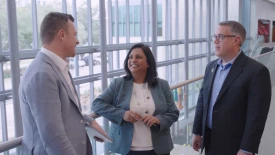
What happened when Sysco chose to ramp up its sustainability efforts? It created powerful opportunities for cost cutting and growth—for both the company and its clients.
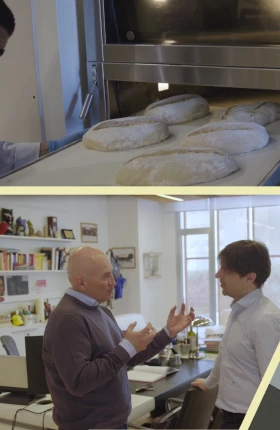
Client Impact
BCG partnered with the Casillo Group to build a brand and business model for a breakthrough food product that’s good for us, good for the planet, and good for business.
In partnership with BCG and BCG X, a leading retail company launched a new business aimed at reducing food waste to enhance climate and societal impacts.

BCG’s Jonathan Van Wyck and John Deere’s Matt Percy discuss how the manufacturer is revolutionizing agriculture with solutions as a service.
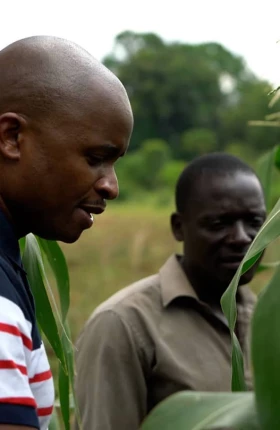
A global leader in plant nutrition and phosphate fertilizers transformed its core business to provide agricultural solutions to ensure global food security and combat climate change.
In this short film, two experts share a meal to discuss the roles that corporations and individuals have to play in creating a more sustainable food system.
Our Partnerships in Food Systems and Security
For more than a decade, BCG has supported WFP to enhance its effectiveness on a wide range of strategic, operational, and organizational issues.
BCG is the knowledge partner of OP2B, a business coalition dedicated to driving transformational change to protect and restore biodiversity, with a specific focus on regenerative agricultural practices.
Our Insights on Food Systems and Security

Article
November 13, 2025
Promoting the transition to regenerative agriculture across entire regional landscapes offers real benefits for farmers and a $310 billion opportunity for investors.
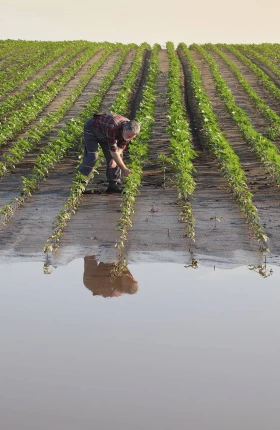
As the largest employer and controller of capital and supply chains, the private sector is well positioned to set new industry standards and support planetary and human health in the face of climate change. Actions to strengthen food systems, rethink urban infrastructure, improve health care responses, and reshape insurance models will be essential to mitigating risks and building climate resilience.
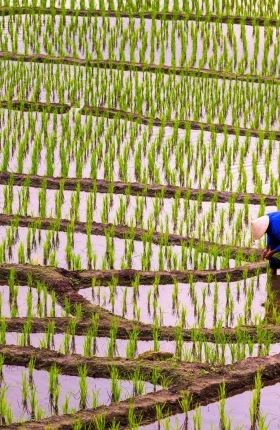
Article
May 1, 2025
As they face unprecedented volatility in global agrifood supply chains, decision makers can act today to build long-term resilience and competitive advantage.

Six actionable opportunities for EU policymakers to accelerate the transition to regenerative agriculture at scale.
Explore Related Services
Industry
Capability
Industry









